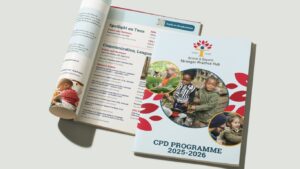Case Study – Beach School
Helen Pugh, Forest and Beach Adventures Ambassador at Little Adventures Nursery,...
Read More|
Download our 2025-2026 CPD Brochure
|
by Ali | Oct 8, 2025 | Case Studies, Featured News to Spotlight | 0 |
Helen Pugh, Forest and Beach Adventures Ambassador at Little Adventures Nursery,...
Read Moreby Ali | Sep 29, 2025 | Case Studies, Featured News to Spotlight | 0 |
Lauren Wilcox is the Baby Room Leader at The Learning Tree Nursery, Chilcompton, Somerset. Lauren...
Read Moreby Ali | Sep 18, 2025 | Featured News to Spotlight, Mini INSET and Staff Room Sessions | 0 |
This comprehensive 45-minute staff meeting template guides early years practitioners through understanding and implementing joyful pedagogy in their setting. The resource explores how joy differs from simple enjoyment, examining it as a deeper, lasting state of wellbeing that benefits both children and educators. Teams work through practical activities including sharing personal experiences of joy, identifying recent joyful moments with children, and mapping barriers and bridges to joy in their provision. The template emphasises how joy is expressed differently across cultures and encourages practitioners to recognise diverse forms of joyful expression. With reference to research showing that engaging in joyful play reduces educator stress whilst enhancing wellbeing, this resource includes follow-up activities, supervision prompts, and suggestions for creating ongoing celebrations of joy. The template empowers settings to prioritise authentic, culturally responsive joyful experiences that foster children’s relationships, self-determination, and positive social-emotional development.
Read Moreby Ali | Mar 21, 2025 | Featured News to Spotlight, Mini INSET and Staff Room Sessions | 0 |
This comprehensive staff meeting template provides early years educators a structured approach to understanding and supporting schemas in children’s play and development. Over the course of one hour, the resource guides teams through exploring schemas – repeated patterns of behaviour that help children develop cognitive connections and understand the world in their unique way. The template includes practical exercises for identifying schemas in children’s play, discussing real observations or scenario-based examples, and auditing the learning environment. With reference materials including a detailed schema types table, discussion scenarios, and an environment audit tool, this resource helps practitioners build confidence in recognising and extending children’s natural learning patterns. The template empowers settings to tailor their practice to children’s intrinsic interests, support deeper engagement, and create more inclusive environments where all children’s ways of learning are valued.
Read Moreby Ali | Jan 22, 2025 | Making Sense Of... | 0 |
The Education Endowment Foundation (EEF) is a charity that aims to improve education outcomes for...
Read Moreby Ali | Jan 20, 2025 | Case Studies | 0 |
Elaina Eakers is a childminder in Gloucester, awarded Outstanding by Ofsted in 2016 &...
Read Moreby Ali | Jan 15, 2025 | Featured News to Spotlight, Mini INSET and Staff Room Sessions | 0 |
This comprehensive staff meeting template provides early years settings with a structured approach to exploring and implementing slow pedagogy principles in their practice. Based on Alison Clark’s research and writing, the template guides teams through understanding what slow pedagogy means, identifying opportunities throughout the day for unhurried learning, and reflecting on specific aspects like mealtimes and storytelling. Complete with discussion prompts, practical activities, and follow-up suggestions, this one-hour meeting plan helps settings develop more attentive, child-centered approaches that value children’s natural rhythms and deeper learning experiences. The template is particularly useful for settings looking to move away from rushed routines and create more meaningful engagement with children.
Read Moreby Ali | Dec 19, 2024 | Case Studies, News, SPH Blog | 0 |
In this blog post, by Dr. Louise Hannan, the complex emotional landscape of Early Years settings is explored through the lens of staff well-being and self-care strategies. Drawing from her experience as a practitioner, manager, and researcher, she examines how staff emotional well-being directly impacts children’s development through warm, responsive relationships. Through a case study with Bridgwater and Taunton College Childcare Centre, the research demonstrates how implementing simple self-care strategies can enhance job satisfaction, reduce stress, and create a more positive environment for both staff and children.
Read Moreby Ali | Dec 18, 2024 | Case Studies | 0 |
Archfield House received their second outstanding Ofsted rating in April 2023 and the Nursery of...
Read Moreby Ali | Dec 18, 2024 | Case Studies | 0 |
Claire Burt, Children’s Services Manager from Barnardo’s Nurseries, attended a Study Day at Easton...
Read Moreby Ali | Dec 18, 2024 | Case Studies | 0 |
Mitch Cole, Nursery Manager at Woodland House Nursery, attended a Study Day at St. Paul’s Nursery...
Read Moreby Ali | Nov 26, 2024 | Case Studies, News, SPH Blog | 0 |
Relationship Mapping, Attachment and Attunement in the Early Years is a training course delivered by Jacqui Lewis, an early years specialist. The Bristol & Beyond Stronger Practice Hub funded Jacqui to extend the delivery of this training to include our SPH area. The course explores the concept of relationship mapping, using sociograms to visualise relationships, and provides an opportunity to reflect upon the individual and pedagogical factors which influence adult-child relationships, and to consider how to strengthen relationships so that every child has a meaningful connection.
Read More


View all our 2025-2026 webinars, events, network sessions and CPD programmes
